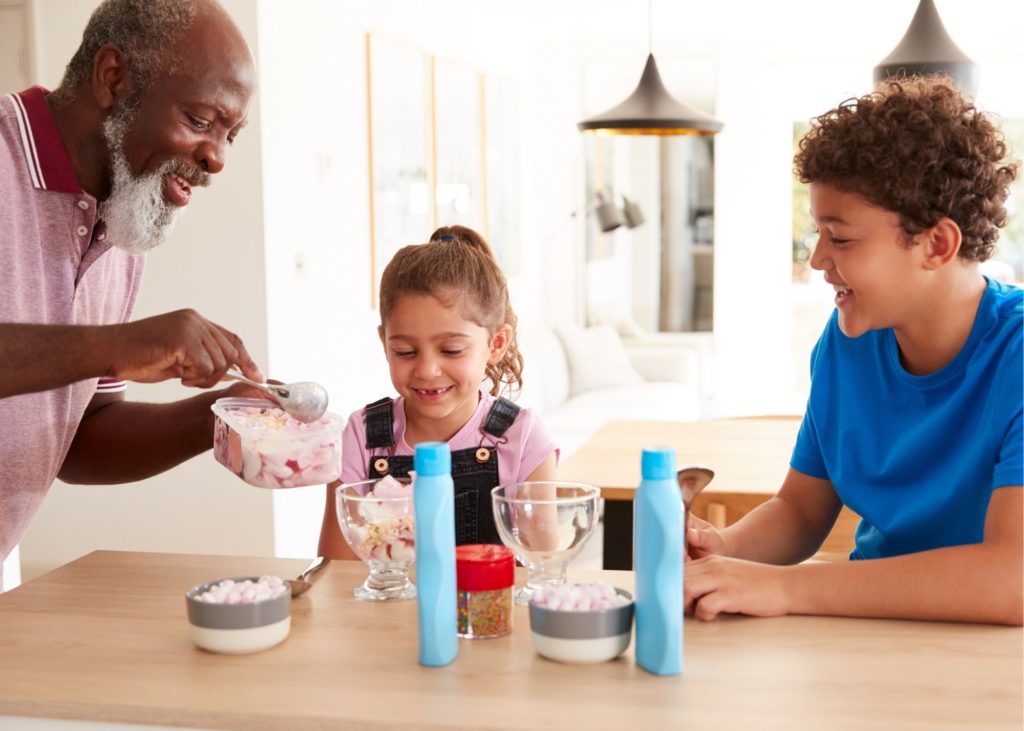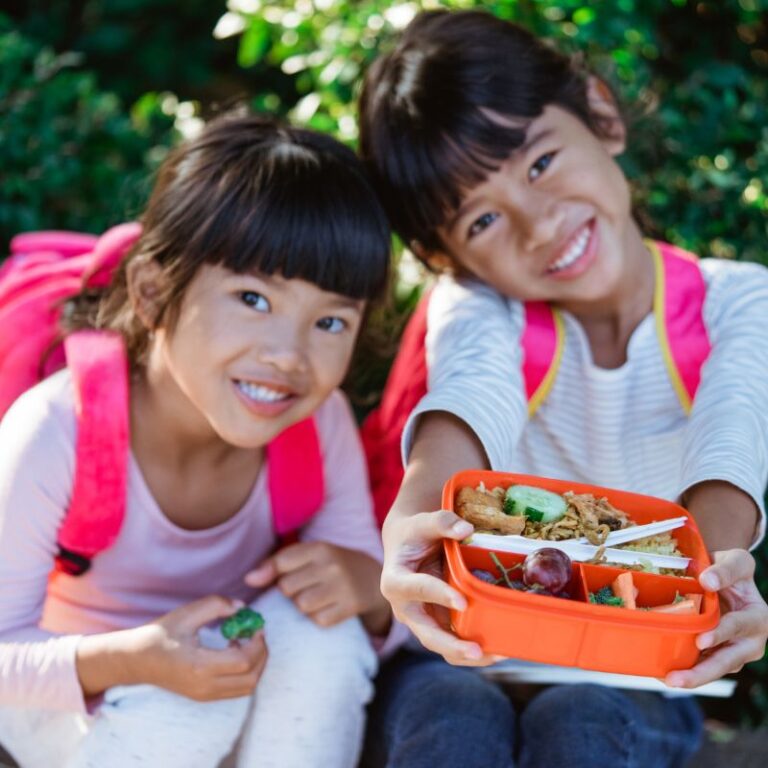“How do I handle grandparents who overindulge my kids with treats?” This question seems to surface weekly in my practice. Whether in counselling sessions or in our online program, many parents admit they struggle with this issue!
As is true for many parents, I rely on my own parents, my mom specifically, for childcare. During the school year, grandma picks up the kids from school 1 to 2 days a week. Throughout the summer, she takes the kids for a full day every week or an entire week at a time.
Whether your parents or in-laws see your kids infrequently or daily, if they love to shower them with treats, it can easily become a point of contention. You may experience feelings of frustration, anger or even resentment towards them for going overboard and spoiling the kids.
Comments I often hear are:
“They always have their cupboards loaded with “junk” and give the kids whatever they want whenever they ask”.
“They are sabotaging my efforts to try to raise a healthy child.”
“Whenever the kids get back from grandma and grandpa’s house they’re on ‘sugar overload’.”

Research supports that grandparents are known for their permissive and indulgent feeding style on a whole. But is that all bad news?
Therein enters the conundrum. Should you talk to grandma and grandpa about your distain for overindulging the grandkids? Or, should you just “zip it” and let the junk food “free-for-alls” continue?
Here are three suggestions/reflections for you to ponder before deciding next steps.
1) Reflect on frequency.
There is a big difference between your kids getting a lollipop once a week during a visit vs. being offered an all-you-can eat Cheetos buffet daily.
a) If grandparents are NOT primary care providers…
If your children are at nana’s a few times a month (or even a couple times a week), let’s breathe.
An extra portion of ice cream or an unlimited snack of milk and cookies is not a bad thing. In fact, grandparents can actually be part of fostering a healthy relationship with these foods. If your kids are with grandma and grandpa for a week of vacation, it can be a fun time of creating memories which involve food.
To this day I have vivid memories of my grandma’s jelly bean dish! Every afternoon at 3:30 my sisters and I would get off the bus, and bust into grandma’s house for a handful of jelly beans! (She lived at the end of our long laneway). If she wasn’t at home, we’d climb through the window to get inside! We needed the fuel for the long trek into the farm! This is a memory I will cherish forever.
And remember, just because donuts are served for breakfast at grandma’s one day, it doesn’t mean your kids will demand them at home. Continue providing consistent boundaries around food at home and they will learn there is a time and place for everything.
b) If grandparents ARE primary care providers...
Research supports that the impact of grandparental caregiving on child feeding becomes more influential as their caregiving role increases. If grandparents are primary care providers or sitters, it’s reasonable (and beneficial) to have a discussion about feeding. You want to be on the same page and provide consistent boundaries for your kids.
Here are some suggestions on how to have a productive conversation:
- Have this conversation sometime when the kids aren’t around. If the children are around and see treats as a point of conflict, it will not help the situation. It may also create battle lines around “whose side are you on?”
- Keep emotions and finger-pointing out of it. Keep the conversation neutral. Provide some concrete examples about how you are feeling. Start your sentences with “I feel …” instead of blaming phrases like “You are …”. Let them know why you are concerned. For example: “if George eats candy before dinner, he isn’t hungry for supper.” Or “Gracie has been constipated recently so we are trying to boost her intake by offering more fruits and vegetables.”
- Focus on mealtime environment/structure more than food. Providing consistent meal and snack times in a positive, no-pressure environment is most important. You could ask them to offer the cookies at snack time, instead of whenever the kids ask for them.
- Provide some suggestions around treats – don’t suggest a complete elimination. You may suggest that Thursday afternoons can be ice cream day instead of every afternoon.
- Encourage connection with food. If your mother-in-law is a fantastic baker, encourage her to bake a chocolate cake WITH the kids! These hands-on experiences and memories are so valuable for kids! There is so much learning and richness that comes from memory-making in the kitchen.
- Reinforce how much you appreciate their help. Don’t burn bridges. I know deep down you appreciate their help and support. Let them know how grateful you are at the start and end of the conversation.
2. Why does this hit a nerve for you?
In my experience with families, the frustration is often a result of a perceived lack of control over the situation. It feels completely “out of control” or something you simply cannot influence or change.
It may also be grief you’re feeling. Since the grandparents overindulge the kids, you feel like you can no longer offer treats in your house. Therefore, you miss out on “treating” your own kids. It’s that good cop / bad cop feeling.
However, your frustration may not actually be about the treats. It could be related to a different, underlying concern about your parents. Maybe it’s how they spoil your kids but never spoiled you growing up?
Alternatively, there could be some underlying perceived fear on your part about junk food and your child’s health. This is a blog post for another day, but as I have mentioned before, restriction of sweets is not helpful. We need to find somehow find a balance to help nurture a good relationship with food for our children.
3. Memories and relationships matter.

Just last weekend, I made pancakes for the kids for breakfast. As they started eating, my 5-year-old stated that “at grandma’s house she adds chocolate chips to the batter!” She followed this up with “she even lets us put salty peanut butter and lots of syrup on top!”
I could interpret this as a battle line – grandma against mommy! Or, I could see this for what it was: a special memory birthed at grandma’s house. A memory to cherish and something to look forward to at the next sleepover.
So what’s the moral of story here? Don’t let food severe an important relationship in your child’s life. However, do have the courage to engage in a constructive conversation about feeding practices. This is especially important when grandparents are heavily involved in childcare and feeding.
If you need help navigating situations like this, reach out for support. We work with families of all shapes and sizes. Getting everyone on board with feeding can ease stress and who need more stress these days?
Take it one bite at a time,
Rosanne Robinson, RD






